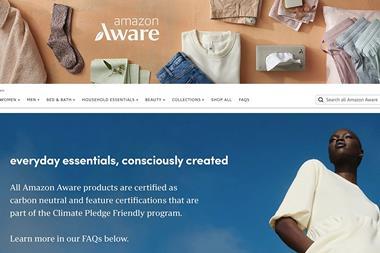Former Unilever boss Paul Polman has urged retailers to escape “the rat race of quarterly reporting” in order to drive longer-term change on sustainability.

Delivering the World Retail Congress annual lecture to a standing ovation, Polman warned business leaders that “the time for action is now” and insisted retailers that fail to go green are “heading to the graveyard of dinosaurs”.
Polman’s words came just two days after a fresh report by the Intergovernmental Panel on Climate Change (IPCC) warned it was “now or never” if the world is to stave off a climate disaster.
Polman acknowledged that the speed of change required was the likes that “we have never seen before”, but urged grocer and apparel operators, in particular, to take action now.
“Food and fashion obviously are at the heart of retail. They are a big part of the challenge, but also of the solutions. We simply cannot achieve the sustainable development goals without your industry,” he said.
“The food sector has the largest environmental and social footprint in the world. In fact, if it was measured on carbon emissions, it would be bigger than the fossil fuels segment. This sector will be the next big focus.
“You are responsible as an industry for 30% of greenhouse gasses, 70% of freshwater use, 80% of land conversion and degradation, and 70% of deforestation. But 800 million people still go to bed hungry every day, not knowing if they will wake up the next day. And then that system has the audacity to waste about a third of the food that is produced.
“The fashion industry – $1.5trn in revenue, employing 300 million people – is not much better. Biodiversity destruction, climate change and labour standards also feature highly in that industry in terms of the rankings – and not the rankings where you want to be.
“So where do we go? Do we just accept this and keep going? Do we make marginal improvements? It is in your hands – you decide what side of history you want to be on.”
Polman added: “Consumers are demanding the shifts, especially millennials and Gen-Zs – they want to buy brands that stand for something, they are willing to pay more for it, they are willing to select the companies they want to work for based on those who have a more responsible social profile.
“Companies would be well-served to jump on that bandwagon and to start to take the initiative at the level that is needed. Those that don’t, I think, are already heading to the graveyard of dinosaurs.”
- Catch up with the insights from World Retail Congress later this week on retail-week.com


























1 Reader's comment